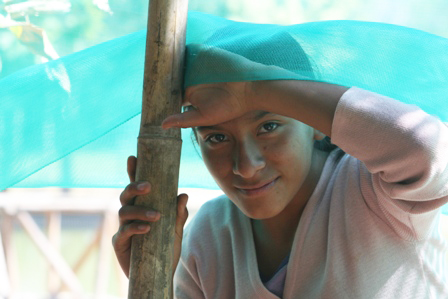Preventing the spread of the Zika virus
Although the Zika virus has been detected in several countries where NPH homes are located, there are currently no cases among our children, and only one confirmed case of a staff member in Haiti contracting it.
…
Updated February 10, 2016
Although the Zika virus has been detected in several countries where NPH homes are located, there are currently no cases among our children, and only one confirmed case of a staff member in Haiti contracting it.NPH International (NPHI) Actions:
- Continue and reinforce preventive measures, including:
- Utilizing screens in doors and windows
- Using mosquito nets in the beds for babies and children with chronic conditions
- Trash management
- Prevent collection of water where the mosquitos reproduce
- Continue to monitor the types of infections at the homes. The NPHI Medical Services team is notified when a home has cases of dengue, malaria, chikungunya, chicken pox, hepatitis A, and all types of infectious diseases that can spread easily in unhygienic conditions and if preventive measures are not in place or reinforced.
If you are traveling to one of our homes, please consider taking a mosquito net and hooks to donate.
NPHI Medical Services strongly suggests that you follow the below precautions if you are traveling to our homes.
- If you are pregnant, or about to become pregnant, you should not travel to countries with Zika until more studies had been conducted.
- Review your vaccine status.
- Protect yourself from mosquito bites:
- Cover exposed skin by wearing long-sleeved shirts and long pants.
- Use EPA-registered insect repellents containing DEET, picaridin, oil of lemon eucalyptus (OLE), or IR3535. Always use as directed.
- Pregnant and breastfeeding women can use all EPA-registered insect repellents, including DEET, according to the product label.
- Most repellents, including DEET, can be used on children aged >2 months.
- Use permethrin-treated clothing and gear (such as boots, pants, socks, and tents). You can buy pre-treated clothing and gear or treat them yourself.
- Drink only safe water – ask the home for the status of the tap water (usually safe but if there is any doubt drink only bottled water).
- Bring a mosquito net for sleeping.
- Check the surroundings of your bed at bedtime.
- Stay and sleep in screened-in or air-conditioned rooms.
With these measures, you also help to avoid imported cases of Zika. |
|

Changing a mosquito net outside
NPH Peru’s dining room
KEY FACTS
from CDC and WHO
| • |
Zika virus is transmitted to people through the bite of an infected Aedes species mosquito. This is the same mosquito that transmits dengue, chikungunya and yellow fever. Transmission may occur through sexual contact. |
| • |
One in five people infected become ill or notice symptoms. |
| • |
Symptoms usually include a mild fever, skin rash and conjunctivitis (red eyes). These normally last for 2-7 days. |
| • |
There is no specific treatment or vaccine currently available. |
| • |
The best form of prevention is protection against mosquito bites. |
|
|
If you have been travelling to one of the countries and you are pregnant, go to your doctor to do a test (initial recommendations were to go only if you had symptoms).
If you feel sick and think you may have Zika from visiting one of the NPH home countries, please inform us at info@nphusa.org. In addition:
- Talk to your doctor or nurse if you develop a fever with a rash, joint pain, or red eyes. Tell him or her about your travel.
- Take medicine, such as acetaminophen or paracetamol, to relieve fever and pain. Do not take aspirin, products containing aspirin, or other nonsteroidal anti-inflammatory drugs such as ibuprofen.
- Get lots of rest and drink plenty of liquids.
- Prevent additional mosquito bites to avoid spreading the disease.
…
For more information, please contact your trip coordinator, call 888-201-8880 or email info@nphusa.org.Related Information:
• How Your Help Makes an Impact at NPH
• NPHI Medical Services Blog
• More News
…
External Links:
• Centers for Disease Control (CDC): Zika Virus Page
• World Health Organization (WHO): Zika Virus Page








